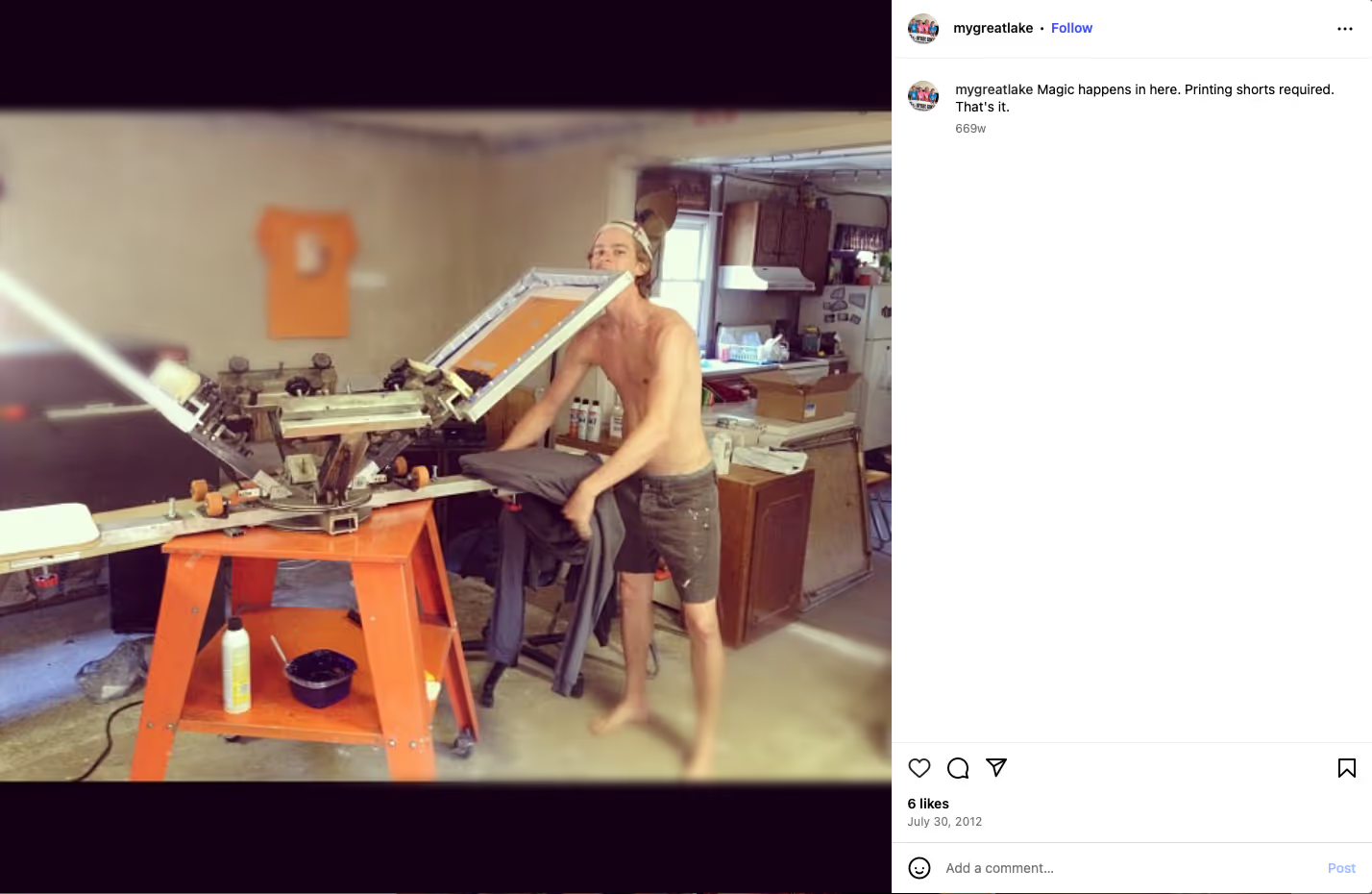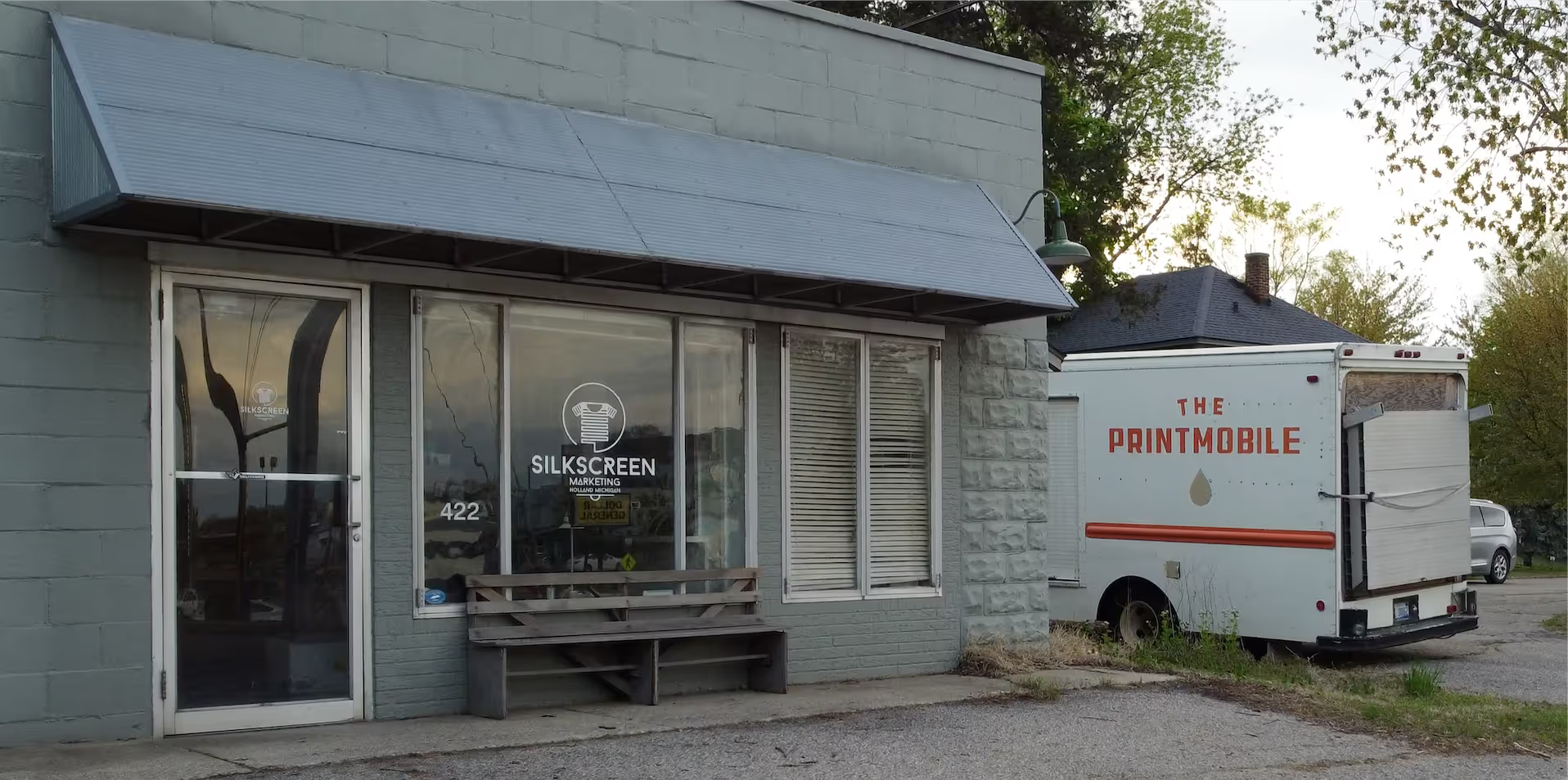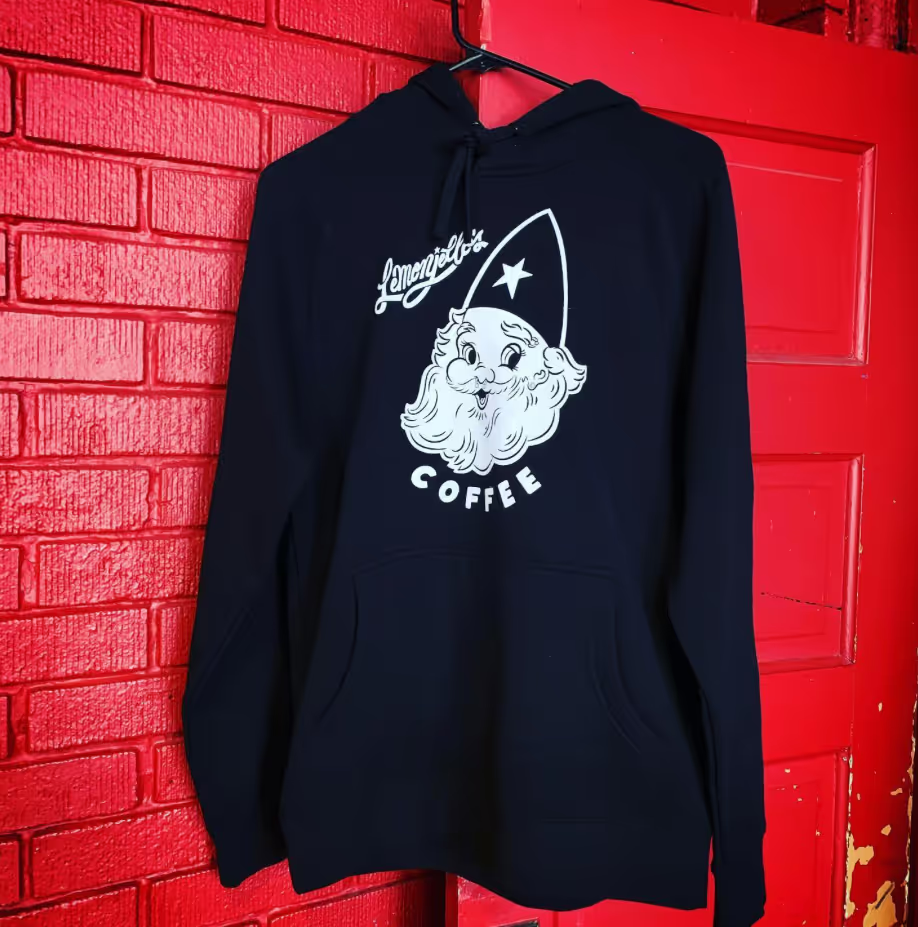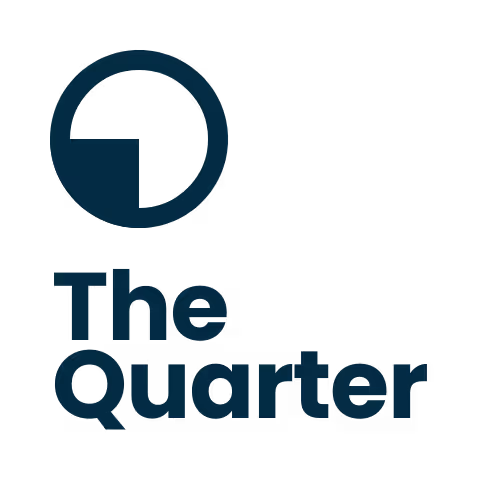Sleeping in Boats Led to This $300k Studio

When I started my entrepreneurial journey, Kylen Blom was one of the founders I immediately looked up to. He had legendary stories like sleeping in boats to sell his t-shirts, and he was already running his business full-time right after college while I was just getting started.
That felt like the dream.
Today, Kylen is a good friend and someone I still admire. He's the founder of Silkscreen Marketing, an art-focused production studio in Holland, MI. He's built an incredible studio that takes swag items that usually come out generic and boring and makes them genuinely creative and memorable.
In this deep dive, we'll explore how a college pitch competition led to sleeping in boats around the Great Lakes, how a small local team competes with giant competitors, and how Kylen and his team think about growth in a different way than most.
Let's dive in.
Download the free Bootstrapped Report here. The data behind 64 founders who built their businesses to $250k+ in annual revenue without venture capital.
The Story of Silkscreen Marketing
The start of My Great Lake

Kylen started his entrepreneurial journey while studying at Hope College, a small Christian college in West Michigan with about 3,400 students.
At the time, student pitch competitions were just becoming popular. The concept was simple: pitch a business idea and potentially win a few hundred dollars in startup funding. For Kylen, the math was even simpler. "$200 is grocery money for the month," so he decided to give it a shot.
At one competition, the tables turned when a judge pitched him an idea: create well-designed t-shirts for each of the Great Lakes under the brand "My Great Lake." The concept was to let people claim their favorite lake and wear it proudly, then get these shirts into every touristy apparel shop in small towns along the Great Lakes coastlines.
For anyone familiar with the Midwest, this idea had natural appeal. There's deep regional pride tied to the Great Lakes, whether it's your hometown, your state, or just the lake you grew up visiting.
Kylen ran with the idea and created the shirts. True to the judge's vision, he decided to hit every retail store he could find in touristy towns around the Great Lakes.
He invited a few friends to join him, and they spent the entire summer driving around Lake Michigan. Money was tight, but they made it work by trading t-shirts for food and beer. They couldn't afford lodging, so they slept in boats, camped wherever they could, and turned the whole experience into an adventure. They'd meet locals, go fishing, and explore the Great Lakes region while building the My Great Lake business.

For college students, it was the perfect summer hustle.
The approach worked. By summer's end, My Great Lake t-shirts were in over 30 retail locations, and sales were strong enough that Kylen saw an opportunity to scale. He bought all the equipment needed to print shirts himself: a screen-printer, dryer, and other essentials, setting up shop in his parents' barn.

Despite having zero experience with screen printing, Kylen taught himself the process. There were quality issues at first, but he eventually mastered the craft.
The start of Silkscreen Marketing

Kylen continued to grow My Great Lake but eventually decided to sell it to a larger Michigan apparel company so he could move on to new ideas and ventures. Who knew the incentive of grocery money for the month would turn into an acquirable business?
Kylen kept one screen printer from the sale, already thinking ahead to his next venture. Soon, people started approaching him for help with various projects: printing a few dozen shirts, designing a new logo, creating a website. With the equipment ready and his experience in hand, he was becoming the local go-to guy for creative work.
Kylen formalized these requests into his new business: Silkscreen Marketing. Through all these varied projects, he discovered an interesting niche as a marketing and design company with a sweet spot of printing 50-300 custom shirts for local businesses.

This positioning gave Silkscreen distinct advantages over large competitors like CustomInk. At their scale and with their local presence, Silkscreen could be faster and more cost-effective. Customers could visit the shop, see samples, and work directly with Kylen's team to ensure quality. Instead of placing an online order and hoping for the best, clients got the trustworthy neighbor experience with professional results.
The local focus has proved successful. When I chatted with Kylen, he mentioned that about 90% of their business stays within Michigan, with only 10% requiring shipping. Since 2013, Kylen has been running Silkscreen Marketing with 2 other team members, typically generating around $300k in annual revenue.
Vision & Strategy of Silkscreen Marketing

When I talked with Kylen, one of the things that stuck with me is how differently Silkscreen Marketing approaches growth compared to most businesses.
Most companies set ambitious revenue targets: "Let's hit $1 million this year" or "We need to grow 2x." For the Silkscreen team, $250k is their sweet spot where everyone feels financially healthy and satisfied.
But here's what makes their approach unique: once they hit that number, growth isn't about scaling revenue. It's about choosing what kind of work they want to do. Recently, they bought machines for hats and embroidery because the team wanted to expand their creative services. As Kylen put it, growing to $500k would mean a completely different team and operation. Sure, they could get there, but would it be work they actually want to do?
Every six months, the team gets together to decide where they want to take the business and what type of work excites them for the future. As a bootstrapped business hovering around $300k annually, they can't make massive investments, but they can experiment and see what works.
This approach creates something rare: a way to make a great living while keeping work feeling fresh. They maintain a stable base with high-quality local t-shirt printing, then have the option to make small creative bets on hats, embroidery, or even stationery. It balances business ownership with creative fulfillment.
Growth Strategies of Silkscreen Marketing
Relationships

In Holland, MI, Kylen has become something of a local business fixture. Walk into almost any coffee shop, restaurant, or store around town, and you'll likely see Silkscreen's work: custom t-shirts, logos, or branded materials they've designed and produced.
This omnipresence isn't accidental. Kylen has been intentional about building relationships throughout West Michigan since his early days. When he was a recent college grad, he started by attending networking events (even the awkward ones) and made it a point to meet new businesses opening in the area. As mentioned earlier, his first business, My Great Lake, started through a relationship built at a pitch competition.
The relationship-first approach has compounded over time. Today, most of Silkscreen's business comes from repeat customers, which speaks to the power of combining strong relationships with quality work. When you have that foundation in a tight-knit business community, customers keep coming back for their ongoing needs.
Kylen doesn't have to actively network as much anymore because the foundation is solid. But it's a reminder that in local service businesses, relationships often matter more than any marketing strategy.
Cold Outreach

Kylen's approach to cold outreach was old school: he literally walked into every retail store he could find around the Great Lakes to sell My Great Lake t-shirts.
This hands-on approach taught him skills that still benefit Silkscreen today. First, it made him comfortable with high-level selling. Second, it helped him build relationships from day one. Most importantly, it gave him instant local credibility that compounds over time.
Now when Kylen meets potential new clients, the conversation is much warmer. He can point to work all around town and say, "See those designs at Lemonjellos (the local coffee shop)? That's us." That track record makes connecting with new prospects much easier out of the gate.
Sometimes the best outreach is just showing up in person with examples of your work that people can see and touch.

